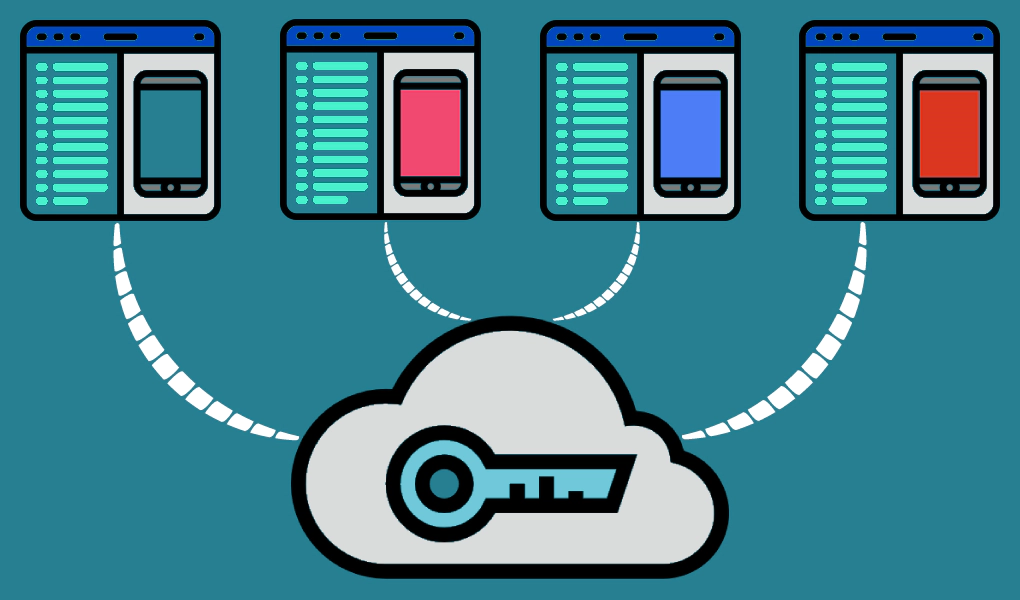
How To Protect Your Employees From Romance Scams
When reading “romance scam” it’s common that the first thing that comes to mind is falling for the classic …

Switching between apps and devices and logging in to each one can prove frustrating. On top of that, there are also security risks associated with this method. How can companies successfully address these challenges?
The answer is Single Sign-On (SSO), which improves security and users' productivity and motivation. This article talks about the importance of SSO in enterprise world.
SSO in the enterprise allows employees to authenticate in a centralized manner with a single set of credentials to access all the applications, websites, and data they need.
Combine SSO with a Unified Access Management (UAM) system, and you just saved yourself a lot of time and money by centrally managing user identities. To integrate SSO and UAM into your company, you need an Identify Provider (IdP). There are plenty of solutions that implement this, but the 2 most popular ones are Microsoft Active Directory and Google Suite.
One of the biggest gains of SSO is the fact that employees no longer need to create new set of credentials for every service they need. Besides, it doesn’t matter where they are or which device they work on — SSO provides secure access to applications both in the cloud and on-premise.
Let’s explore the benefits of using SSO:
Having to face a data breach is one of the biggest fears of any company. It is paramount to ensure that employees use unique and secure passwords. However, creating and remembering complex passwords for all apps used is burdensome and prone to error. Not to mention that the more difficult they are to remember, the more likely employees are to write them down or store them in insecure and easy-to-access places. Another significant security issue is that many people tend to use the same or similar passwords for multiple accounts.
To make employees' life easier and ensure the security of your data, SSO is the optimal choice for your business. Users need only a single set of credentials to access their required apps.
Consequently, it is also more straightforward to remember the right password. Also, the fewer credentials your company uses, the less risks your company has to manage and the smaller the attack surface on your data. Everybody is happy.
By utilizing a UAM system, administrators can manage user identities, define services that are accessible via SSO, and determine who can use which apps.
When a new employee joins the company, the IT department can provision a new account for the needed services and apps through a single, centralized interface. Additionally, when an employee leaves the company, it is very easy to revoke that user’s account in the same manner.
In this way, you can ensure that only authorized persons can access specific records and sensitive data, keep track of permissions, and improve transparency.
Engineers use various SaaS solutions to develop web and mobile applications that leverage cloud services, such as databases, CI/CD solutions, and APIs. As a result, their productivity may decrease if they have to manually log in to required apps as it interferes with the workflow.
Often, users end up spending more time recovering forgotten passwords than actually doing their work because of complicated password recovery processes. If new credentials have to be assigned by the IT department, waiting times can be even longer and thus employees are stuck.
Developers need to operate a wide variety of different services and accounts. In order for technical teams to stay motivated and focused, they need to be able to switch between the services and accounts they use in a seamless fashion.
Single Sign-On enables developers to work more productively by singularizing the required credentials. Furthermore, they don’t have to cope with login forms anymore. As a result, they can work uninterrupted and deliver quality products your customers will love.
Are you wondering how your developers may react to the introduction of SSO into your company? Your development and DevOps teams will adapt very well to Single Sign-On, as many are already familiar with the concept from their daily work.
Chances are, they already use other services that enable them to log in using Google or Facebook when signing in to various websites, thus relieving them from the burden of remembering yet another set of credentials.
Despite all the benefits listed above, companies do need to keep in mind possible drawbacks when considering SSO:
Your company must have well-defined standards for secure passwords that are not easy to guess or crack or that are not part of compromised passwords dumps from publicly-disclosed breaches. If one set of SSO credentials is compromised, it can lead to a cascade of breaches under that user’s umbrella. For this, Multi-Factor Authentication (MFA) can help as an additional or compensating control.
If SSO goes down, so does access to all services relying on it. Here is one important reason to tread carefully in choosing an SSO solution. If you’re looking to implement this yourself, make sure you have redundancy (2 or more failover nodes). If on the other hand, you rely on an external vendor SaaS, make sure they have a well-defined and mature business continuity plan with an acceptable SLA. Otherwise, if your identity provider goes down, so does Single Sign-on.
Choosing the right vendor is of the utmost importance. If your IdP gets breached, all linked systems are also exposed. Here is where third party vendor management is so important.
Also, some SSO-linked sites might share data with third-party entities. Understanding how and what is shared in this regard requires thorough homework - or the rock-solid opinion of your company’s information security team.
Implementing SSO can be a double-edged sword: Configured properly, it provides security and productivity. However, these are subjects of concern, none of which is insurmountable. The advantages of SSO clearly outweigh the reasons for caution, but expert professional guidance during planning and implementation is necessary to reap the benefits while minimizing the downsides.
There is no reason for any organization to create its own system or to develop deep SSO expertise. If you are considering implementing or configuring a new SSO capability, Ciatrine’s team can help you identify the best choices for your company.
Contact us to learn more!

When reading “romance scam” it’s common that the first thing that comes to mind is falling for the classic …

October is recognized every year as the Cybersecurity Awareness Month. This campaign encourages individuals and …
If you’re interested in a complete Security Program without the high costs, a cyber security consultant is the best way to start.
Get started Now